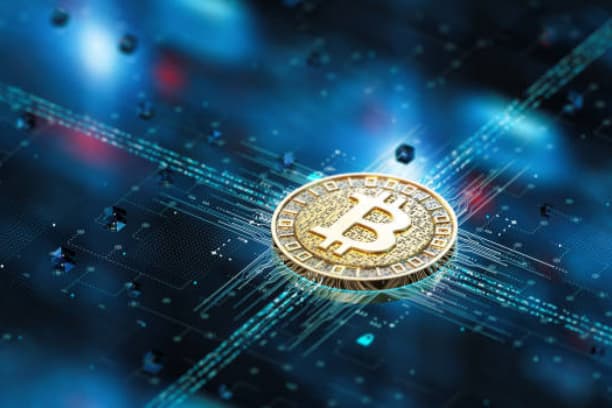Decentralized Finance (DeFi) is an important trend that has risen rapidly in the cryptocurrency field in recent years, which changes the traditional financial system's mode of relying on intermediaries through decentralized technological architecture, enabling users to directly carry out financial transactions and asset management.DeFi is not only a technological innovation, but also a disruption of financial applications and services. From blockchain technology to practical applications, the rise of DeFi is changing our perception of the financial world. In this article, we will discuss the characteristics of decentralized finance, analyze its technical architecture and application prospects, and help readers fully understand the unique charm of DeFi.

What is decentralized finance?
Decentralized Finance (DeFi) refers to a financial system that realizes the disintermediation of financial services through innovative means such as blockchain technology and smart contracts. Intermediaries such as banks, securities companies, insurance companies, etc. in the traditional financial system usually require a lot of time, cost, and trust.DeFi, on the other hand, allows users to directly carry out financial activities such as asset trading, lending and borrowing, insurance, etc. through decentralization without relying on traditional financial institutions.
Core features of decentralization
DeFi's best feature is decentralization, and it demonstrates its strengths through several key features:
- Decentralized Trust: In DeFi, transactions and services do not rely on a single central authority or intermediary, but are enabled by smart contracts on the blockchain. This means that all operations are transparent and publicly verifiable.
- No need for intermediaries: While the traditional financial system relies on banks and other intermediaries to confirm transactions and provide services such as lending and borrowing, DeFi replaces these intermediary roles through algorithms and smart contracts, thereby reducing transaction costs and increasing efficiency.
- Open and global: DeFi platforms are usually free of geographical and identity restrictions, allowing anyone with an internet connection to participate, greatly increasing financial inclusion.
Technology Fundamentals: Blockchain and Smart Contracts
DeFi's core technology foundation is blockchain and smart contracts, which make decentralized finance possible.
- Blockchain Technology: Blockchain provides a decentralized, transparent and tamper-proof way of storing data. It makes every transaction traceable and unalterable, ensuring the security and transparency of funds.
- Smart Contracts: Smart Contracts are program codes that automate the execution of contract terms and conditions. trading and financial products on the DeFi platform are automated through Smart Contracts without human intervention. This makes the trading process more efficient and trustworthy.
Application Scenarios for Decentralized Finance
DeFi has a wide range of application scenarios, covering all aspects of traditional finance, including lending, trading, insurance and so on. With the development of technology, more and more DeFi applications are entering our daily life.
decentralized lending
The DeFi lending platform is one of the most popular applications available. In the traditional financial system, lending and borrowing usually need to go through intermediaries such as banks, and the lending rates and terms are affected by many external factors. On the DeFi platform, however, users can borrow and lend directly, and transactions between borrowers and lenders are automatically executed by smart contracts, with transparent and often low interest rates.
- Liquidity Mining: some DeFi lending platforms also offer a liquidity mining feature that allows users to earn interest or token rewards for providing liquidity.
- No credit check required: DeFi lending platforms usually do not require a credit score in the traditional sense, and borrowers only need to provide the appropriate collateral in order to obtain a loan.
Decentralized Exchange (DEX)
Decentralized Exchanges (DEX) are a very important part of DeFi, allowing users to exchange assets without a third-party intermediary. Compared to centralized exchanges, DEX has higher security and privacy protection.
- Automated Market Maker (AMM): Many DEX platforms use an automated market maker model to provide liquidity and set pair prices automatically through smart contracts, enabling traders to complete trades quickly.
- Asset cross-chain exchange: some DeFi exchanges realize asset trading between different blockchains through cross-chain protocols, providing users with more asset choices and trading pairs.
decentralized insurance
The application of DeFi Insurance is gaining attention. While traditional insurance usually relies on insurance companies to assess risk and execute claims, DeFi Insurance enables disintermediation through smart contracts and blockchain transparency, making the claims process faster and fairer.
- Risk sharing mechanism: In the DeFi insurance platform, multiple users can share the risk and reduce the burden of a single user.
- Smart Contract Automatic Claims: In the event of an insurance event, the smart contract automatically triggers claims based on preset conditions, reducing human intervention and improving claims efficiency and transparency.
Advantages and Challenges of DeFi
DeFi, as a new financial model, brings many innovations and advantages but also faces some challenges and risks.
The DeFi Advantage
- Decentralization: DeFi eliminates the intermediaries in the traditional financial system, making financial activities more direct, transparent and secure.
- Increased financial inclusion: Anyone can participate in DeFi, whether in developed or developing countries, and decentralized finance breaks down geographical and identity constraints.
- Low Transaction Costs: Decentralized finance typically reduces intermediation and therefore has lower transaction costs.
DeFi's challenges
- Smart Contract Vulnerabilities: While smart contracts have greatly increased the automation and efficiency of financial activities, they also carry the risk of programming vulnerabilities. In the event of a vulnerability in the contract code, it could lead to theft of funds or failure of operations.
- Regulatory Issues: Since DeFi platforms do not rely on traditional financial institutions, regulators in many countries have not yet developed a clear regulatory policy for DeFi, which may lead to a number of legal and compliance risks.
- Technical Barriers: Despite DeFi's low barrier to use, understanding and using the DeFi platform can still be challenging for some users with non-technical backgrounds.
The Future of DeFi
With the continuous development of technology, DeFi is expected to usher in more innovations and breakthroughs. Especially with the development of cross-chain technology, the interoperability between different blockchains will be enhanced, and the application scenarios of DeFi will be richer and more diversified. The future DeFi is not only an innovation in the financial field, it may also become a new digital economic infrastructure.
Cross-chain and interoperability
With the rise of several blockchain platforms, cross-chain technology has become one of the keys to DeFi's development. The application of cross-chain technology enables users to seamlessly transfer assets between different blockchains, enhancing DeFi's liquidity and availability.
Regulatory Compliance
As the DeFi market continues to expand, regulators are gradually increasing their focus on decentralized finance. In the future, DeFi platforms may be subject to more regulatory and legal requirements. How to meet the compliance requirements while ensuring the advantages of decentralization will be a major challenge for the future development of DeFi.
summarize
Decentralized finance is leading a new revolution in the financial world by making financial services more efficient, transparent and inclusive through disintermediation. From technology to application, DeFi is using blockchain and smart contracts as the foundation to bring a new financial experience to users around the world. Although DeFi still faces some challenges and risks, it is expected to become an important part of the future of finance as the technology continues to advance and the regulatory framework is gradually improved.







